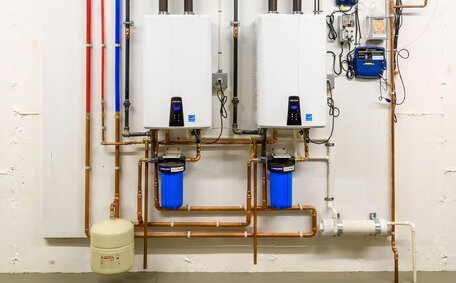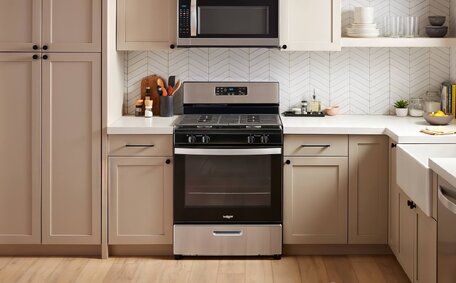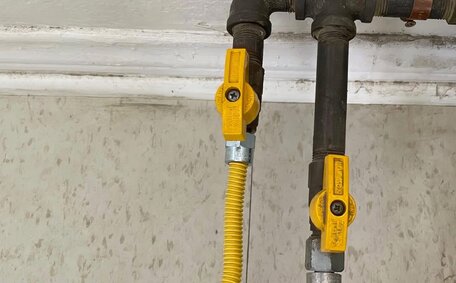
How Hard Water Hurts Hot Water Heaters
Hard water leaves mineral deposits in heaters, pipes and tanks. This limescale reduces efficiency, lifespan and hot water availability. Contact us for affordable water softening solutions.
Read MoreRoutine plumbing inspections are essential preventative maintenance for both residential and commercial plumbing systems.
A professional plumber can spot potential issues such as leaks, blockages, and wear during annual plumbing inspections, preventing them from evolving into substantial repairs or causing water damage.
Regular inspections of your plumbing and heating systems offer peace of mind by detecting problems early on, enabling timely repairs that maintain efficiency and potentially reduce water usage and utility bills.
Experts recommend plumbing inspections every two years to identify and address issues before they become critical.
The general consensus from plumbing experts on how often should a plumber check residential systems, including pipes and fixtures, is every 1 to 2 years. This frequency balances practicality and prevention for having your plumbing system inspected and maintaining your home’s plumbing before issues become significant. Comparing the current state with your last inspection can help catch small problems before they become significant concerns down the road.
On average, plumbing problems arise for homeowners every 18 months. Regular inspections can detect minor issues early, though newer systems might not need as frequent checks.
In contrast, waiting longer than 2 years between plumbing inspections increases the likelihood of undetected issues like hidden leaks or pipe corrosion. This can lead to water damage, mold growth, and costly repairs on your property that could otherwise be avoided. Catching problems early can save you both time and money in the long run before they become unmanageable.
While every 1-2 years is the standard recommendation, some situations call for yearly plumbing inspections. Homes more than 20 years old and houses with mature trees nearby tend to require more vigilance.
New homeowners should schedule yearly inspections initially to identify any existing plumbing issues left by the previous occupants.
While every 1-2 years is the standard recommendation for residential plumbing inspections, certain home factors may necessitate more frequent professional check-ups:
Older homes tend to have more plumbing issues due to ageing infrastructure within the home’s plumbing system. Older homes’ plumbing often requires annual inspections to stay ahead of problems. More frequent inspections that identify issues early can enable a plumbing inspection to help in the early detection of leaks, clogs, and other problems before expensive repairs are needed.
Older plumbing is prone to leaks, corrosion, cracks, and blockages. Outdated fixtures and appliances, such as water heaters, experience increased wear over time.
Large trees like figs, camphor laurels, and bamboos, due to their aggressive roots, pose a risk to underground pipes and sewer lines, potentially causing breaks and blockages.
If your property has several mature trees, it’s prudent to schedule annual plumbing inspections to guard against root intrusions.
Your building with a newer plumbing system may need more frequent inspections at first to uncover any teething problems. Upgrades like re-piping or sewer line replacement can disturb surrounding soil and structures. This can put added stress on pipes and joints, so you want to make sure everything remains intact. New materials may be more prone to initial leaks or failures.
Annual inspections are crucial, especially in the first 2-3 years post-upgrades when potential warranty-covered problems can be addressed promptly.
Homeowners in regions with reactive, acidic, or frequently wet soil may need to undergo a camera inspection annually to monitor pipe integrity.
Clay-based soil can shift and pipes can crack over time. Acidic soil is corrosive to pipes and drains. The composition and moisture levels of surrounding soil impacts underground plumbing lifespan.
A comprehensive plumbing inspection can examine all aspects of your plumbing system. This includes:
The inspector will check your water supply pipes for leaks, corrosion, and flow issues from the main line to branch lines leading to fixtures. Your water pressure can falter, and any signs of leaks or mineral buildup are assessed.
Drain traps in sinks, tubs, and showers are inspected for proper slope, leaks, and clogs that impede drainage flow. Traps prevent sewer gas from entering the home.
Faucets are checked for drips, tightness of connections, potential drains low water pressure, and overall wear and tear. Aerators are cleaned to remove mineral deposits affecting water flow.
Your plumbing pipes are examined for troubling signs like rust, cracks, joint separation, and water stains indicating leaks. Inspectors also use camera scopes to evaluate the interior condition of pipes.
Your water heater is reviewed for leaks, corrosion, low water temperatures, signs of overheating, unusual noises, and sediment buildup. Maintenance tasks like flushing are recommended as needed.
Drain lines throughout the home are inspected for issues like slow drains, low water flow, and clogs. Slow drains point to potential blockages. Camera scopes examine the interior drainpipe condition.
Plumbers use specialised camera equipment to video inspect your main sewer line for root intrusions, cracks, joint gaps, and other damage like corrosion.
Items like sump pumps, supply valves, waste pipes, vent pipes, and gas lines are also examined for proper operation during a plumbing inspection.
One of the most useful diagnostic tools for thorough plumbing inspections is camera imaging technology. Tiny waterproof cameras can be fed through pipes, traps, and drains to provide a detailed visual inspection of the interior.
This allows the plumber to identify problems not visible during a standard visual check of fixtures and supply lines. Camera inspections are particularly helpful for locating issues in difficult areas like:
A significant 90% of plumbing systems harbour defects detectable only with camera imaging, such as cracks and root intrusions, which can lead to water damage or sewer gas leaks if ignored.
In a camera pipe inspection, a specialised tool with a camera is inserted into pipes, allowing the plumber to view a live feed and identify issues such as blockages and joint separations.
Beyond diagnosis, camera scopes can clear minor clogs, turning inspections into precise evaluations, offering homeowners insight into the inner workings of their plumbing system.
Proactive plumbsional inspections, plumbers can spot leaks, blockages, and parts wearing out before catastrophic failure occurs. Catching problems early keeps repairs affordable. Preventative maintenance also extends the lifespan of water heaters, pipes, and other components.
Proactive maintenance remedies these problems to restore full water flow.
Things like mineral deposits, small leaks, and partial blockages reduce system efficiency over time.
Minor drips and leaks can lead to significant water waste, totalling thousands of litres annually.
At Picnic Point Plumbing, we emphasise proactive maintenance with our customers. When plumbers perform scheduled maintenance, they maintain the plumbing in optimal working order. Contact our team today to schedule plumbing inspection or maintenance appointment.
Annual inspections provided by a trustworthy plumbing company can uncover small issues, saving you future trouble and expense.
Proactive plumbing maintenance is highly beneficial, as it enables the early detection of smaller issues, safeguarding the plumbing system against significant damage and maintaining optimal efficiency.
During professional inspections, plumbers can spot leaks, blockages, and parts wearing out before catastrophic failure occurs. Preventative maintenance also extends the lifespanor problems early, circumventing costly emergencies and ensuring efficient system operation.
It’s advisable to book comprehensive plumbing inspections every two years. Licenced plumbers will assess y moving into a property.
Proactive preventative maintenance ensures a longer-lasting, more efficient plumbing system, and the initial investment pays off by saving money and trouble in the future.
Contact Picnic Point Plumbing at jobs@picnicpointplumbingservices.com.au or on 1300 349 338 to arrange inspections or maintenance. Invest in the longevity of your plumbing system.
Hard water leaves mineral deposits in heaters, pipes and tanks. This limescale reduces efficiency, lifespan and hot water availability. Contact us for affordable water softening solutions.
Read MoreIt’s important to routinely check your gas appliances for any issues. Signs of problems include gas leaks, strange sounds, odd smells and more. Have a professional inspect your gas appliances annually and service them regularly for safety.
Read MoreUpgrading your gas meter is a simple process completed by registered technicians. It involves disconnecting your gas supply for 15 minutes to swap the old meter for a new digital smart meter. The upgrade is free and improves accuracy.
Read MorePicnic Point, 2213 NSW
We will call back as soon as possible.




